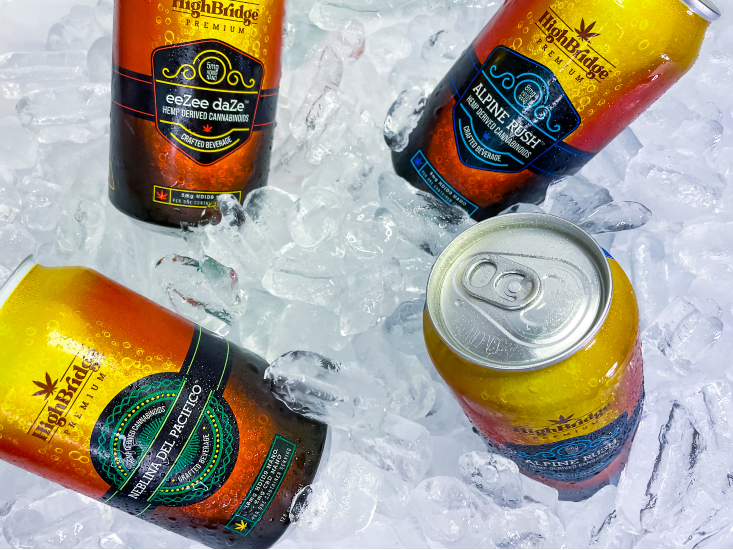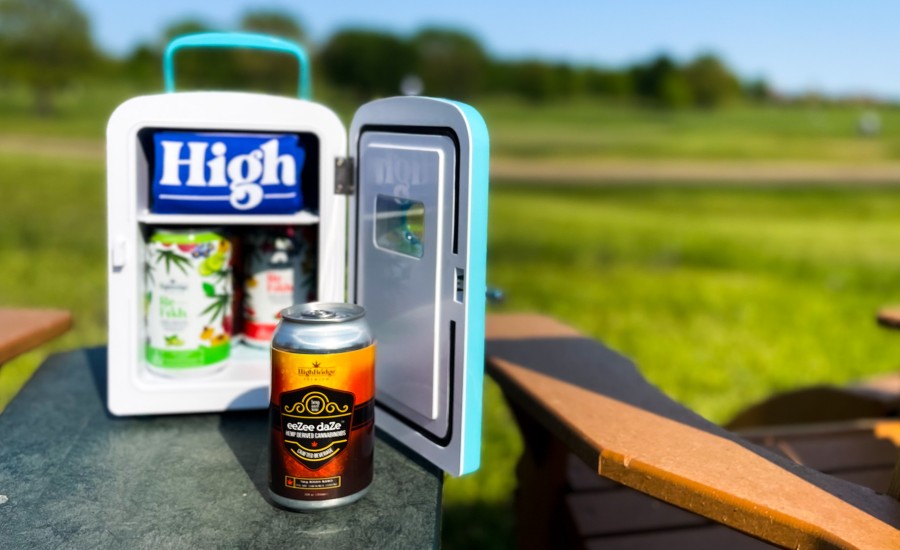James Hunter didn’t have a background in beverages or in cannabis, but that wasn’t going to stop him.
What Hunter, founder and CEO of HighBridge Premium, did have was a background in venture capital and a desire to find and fill a gap in a potentially lucrative market.
“It was an equity challenge. It was an economic challenge,” he said. “I thought, ‘if there’s a way, I’m going to find it.’”
And he has. HighBridge Premium offers a variety of beverage products infused with either cannabis or hemp — including three non-alcoholic, cannabinoid-infused beers — in five states, with plans to expand to more than a dozen markets in the U.S. and abroad.
“It’s been an exciting road,” Hunter said. “We’ve had a lot of fun along the way. As we go, the challenges don’t go away, they just become easier to manage.”
Beer formulation
When Hunter began researching the cannabis industry a few years ago, he noticed there were few cannabis-infused beverages on the market, representing about 3% of total sales. He asked budtenders why dispensaries didn’t offer more infused beverages, their responses were the same — they didn’t taste good and the formulations often separated.
Hunter said he met a former Pepsi chemist based in California, and they developed three iterations before finding a winning formula for non-alcoholic, cannabis-infused beers. The beers are made without brewing or fermentation. The use of carbonation, foaming and defoaming agents, and proprietary “beer flavoring” helps recreate the beer experience, Hunter said.
“It’s created to replicate a real beer — everything from the snap of the cap on the can, to the aroma, to pouring it and the foam head,” he said.
Along with seltzers, an energy drink and aphrodisiac shots, HighBridge Premium offers three beers:
- eeZee Daze: A lager-style beer with 5 mg THC
- Alpine Rush: An IPA-style beer with notes of hops and citrus and 8 mg THC
- Neblina del Pacifico: A Mexican-style pilsner with notes of hops, lime and spice, and 10 mg THC and 2 mg CBD
HighBridge Premium opted for doses of 10 mg or less to promote social experiences, Hunter said.
“We wanted to create a better environment for adult-use cannabis,” he said. “Rather than behind closed doors or in the garage at night, we wanted this to become a socially acceptable way to enjoy relaxation — something you’d be comfortable serving at a dinner party, something a bar would serve as part of a dinner experience, taking it to the beach. We weren’t particularly interested in cramming as much THC into a beverage as we possibly can.”

HighBridge Premium uses nano-emulsion to incorporate the THC into its beers, a system that works whether the company is using hemp-derived or cannabis-derived cannabinoids. Hunter said HighBridge Premium will continue to work with both hemp and cannabis as it expands nationally.
“We’re basically going down both paths,” he said. “Some states embrace the marijuana leaf, and some states embrace the hemp product, and most states are confused by both. We always have that that we need to navigate.”
HighBridge Premium products are available in Arizona, California, Florida, Minnesota and Texas.
Co-packing and expansion
When HighBridge Premium sought to expand into Texas, the company struggled to find a co-packer that could handle its complex beverage formulations.
That’s where San Antonio’s Alamo Beer Company comes in. Hunter described the company as having “vast knowledge” of the beverage manufacturing process.
“We knew that Alamo really cracked the code,” he said. “We knew we had not just the right partner, but a partner with the capacity to handle what we had envisioned as far as growth.”
With Alamo’s help, HighBridge Premium completed the first run of its hemp-derived THC beers in February and began retailing them in March.

Hunter aims to have HighBridge Premium products in 12 to 15 states by the end of the year, and the company is exploring international markets. Hunter said HighBridge Premium has also received requests to participate in festivals.
Furthermore, the company is working on additional SKUs in other beverage categories, as well as seasonal variations of the THC-infused beers. Hunter said the company aims to grow its product portfolio from 14 SKUs to more than 20 this year.
“We look at the time between now and federal legalization as our window of opportunity,” he said. “And once that happens, the window closes because now the whole game changes. The more we can do to increase our brand awareness, our product catalog, our reputation, the more valuable the company becomes.”
This article was originally posted on www.cannabisproductsinsider.com.

